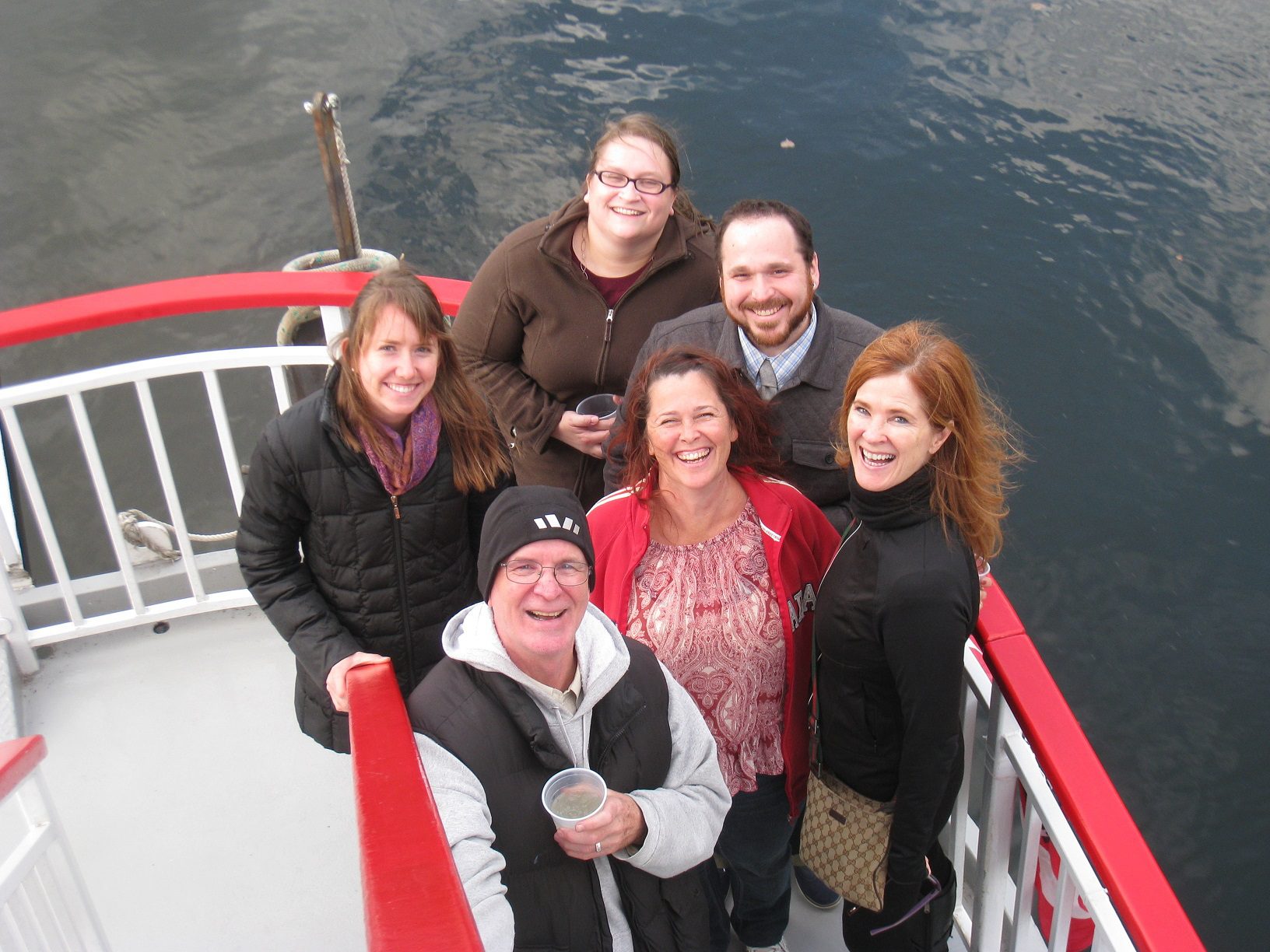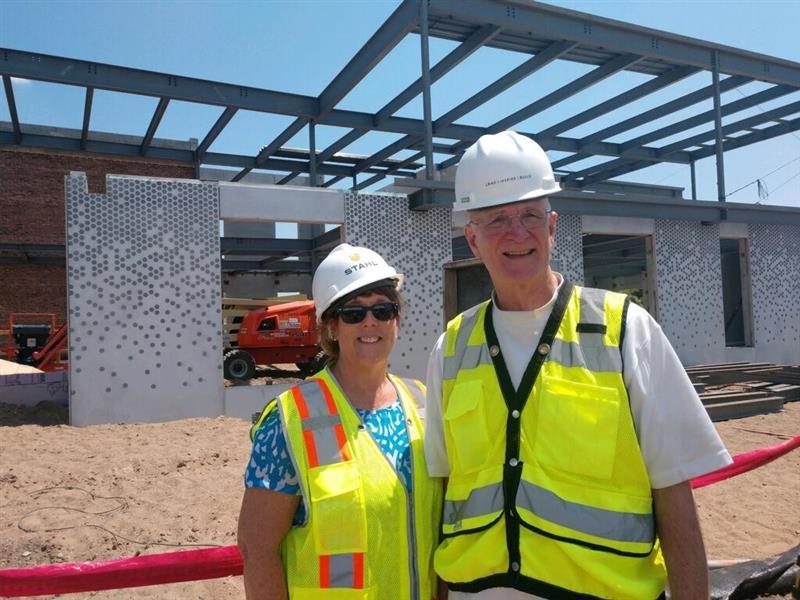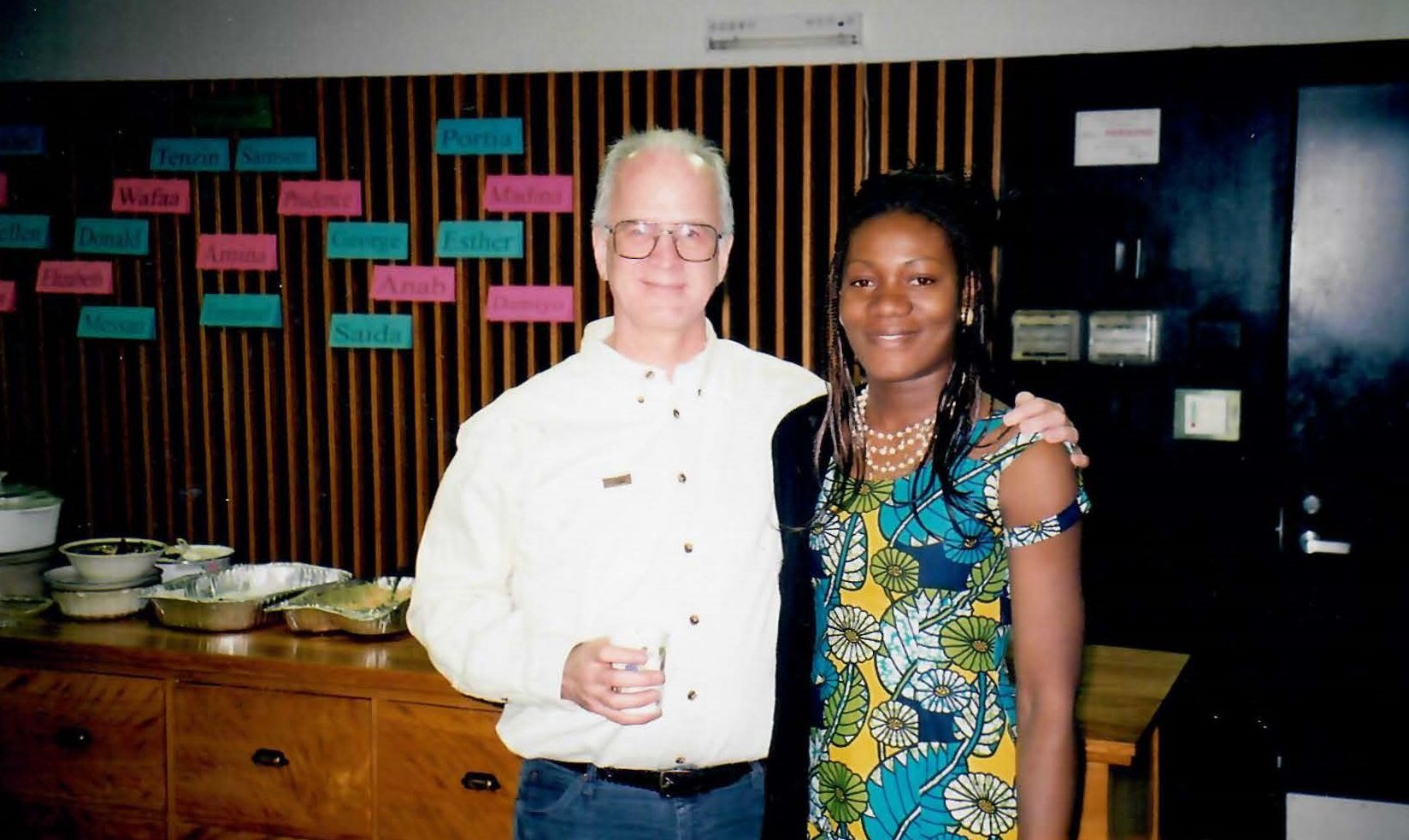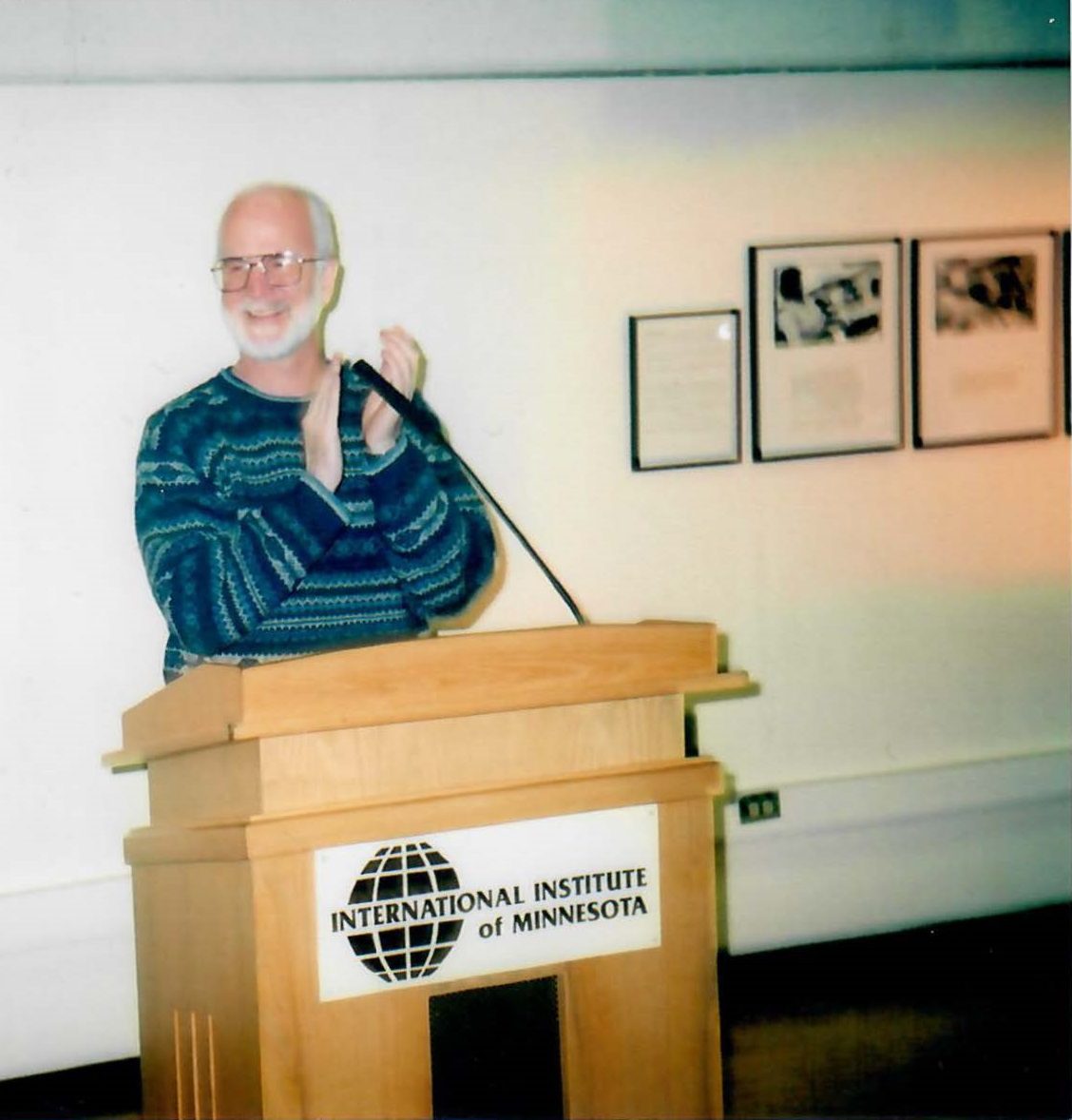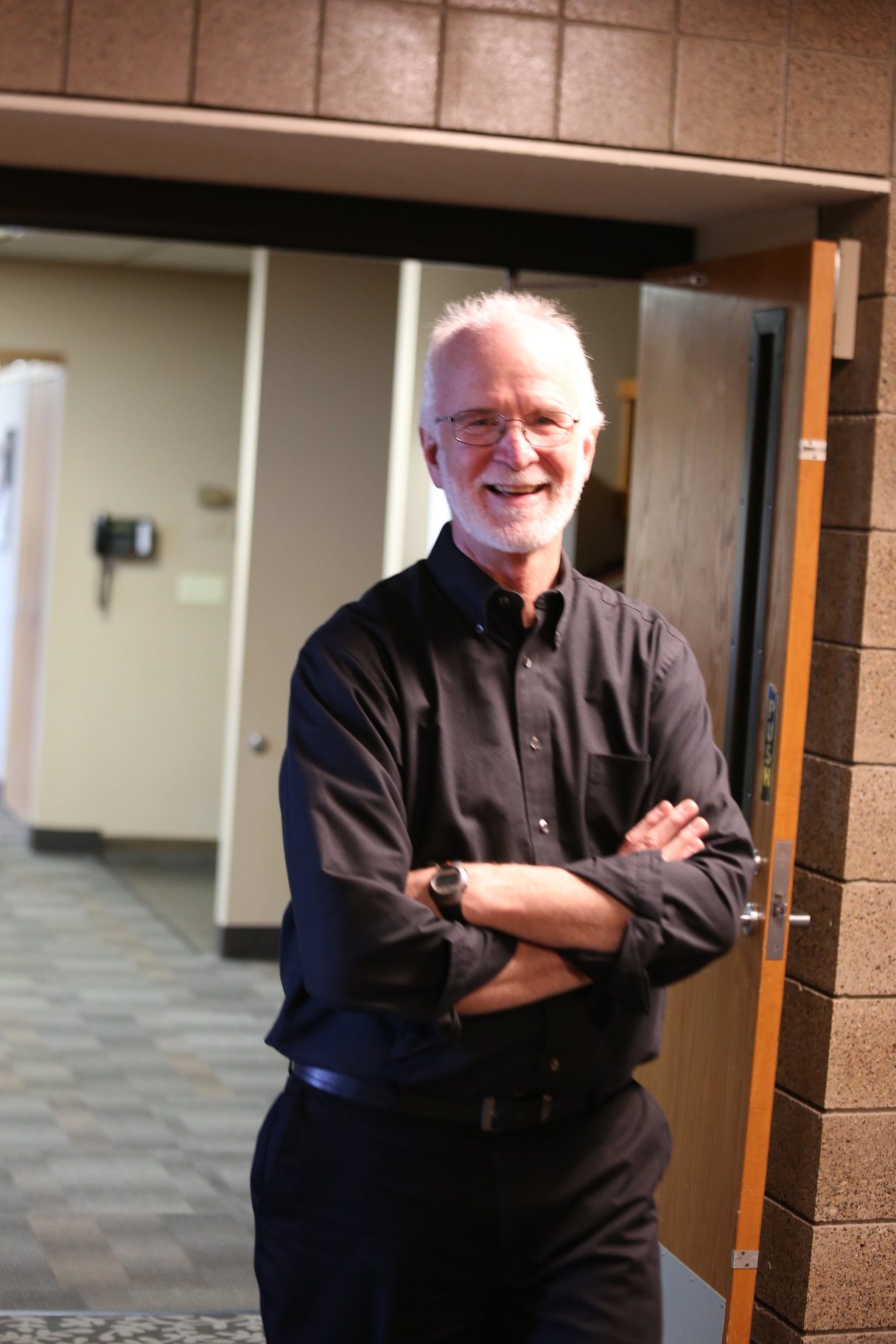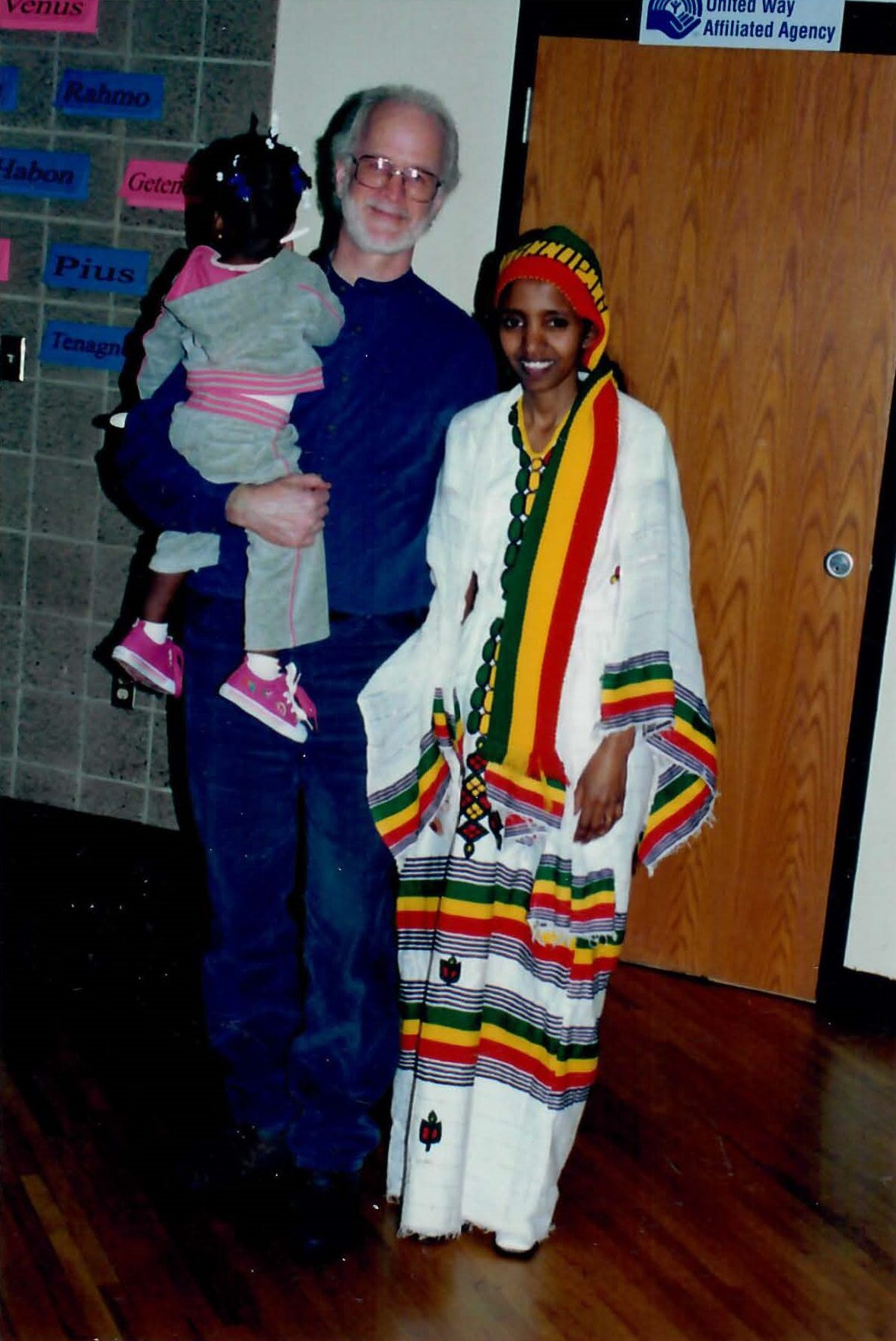Compassion in Action
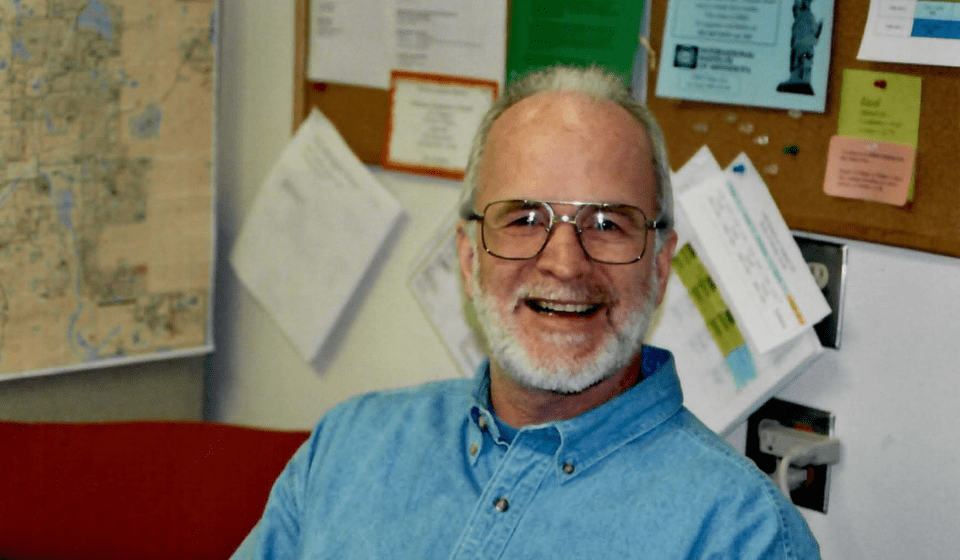
25 Years of Serving New Americans
April 1, 2025 | For more than 25 years, Michael Donahue brought his compassion, knowledge and heart for social justice to work at the International Institute of Minnesota. Now, as he retires as the Institute’s associate director, our staff is saying farewell to one of our longest-serving and most beloved staff members.
“I’m so proud of the work we do. I tell everyone I see about the work that we do. That’s one of the things I will miss,” Michael said.
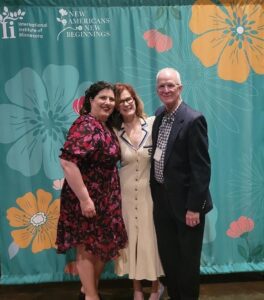
His career at the Institute began in December 1999 in workforce development, supporting students in the Nursing Assistant Program. He recalled the first student graduation he attended, when one of the graduates stood up to speak.
“I had tears streaming down my face. Her speech was about the teachers. The student said, “No one has ever treated us this way,’ ” Michael recalled.
“At that time, we didn’t have employment counselors yet. The teachers did everything. And the students would open up, tell you their stories, and share what they’d been through. It was unbelievable,” he said. “They’re not just students who are coming to learn. We do more than that.”
It’s the type of interaction that continues happening regularly at the Institute.
When Michael first witnessed the power of that trust built between Institute clients and staff, he knew he’d found a new professional home. After all, building community had always been at the core of his work.
How his work began
Michael began his career in social justice at the height of the Vietnam War – not working in the field of immigration, but in the Jesuit religious community he entered at the age of 18. From the beginning, and throughout his career, Michael knew his calling was to build community and connect with people on a deeper level.
After 11 years of studying and teaching, Michael became a Jesuit priest, living in community and dedicating his life to helping others. In 1980, Michael’s parish in Manhattan opened one of the city’s first homeless shelters, prepared and hosted Sunday meals for the unhoused, and led workshops on complex social issues such as the violence happening in El Salvador. Michael also spent time living in Central and South America, studying Spanish and working in Spanish ministry.
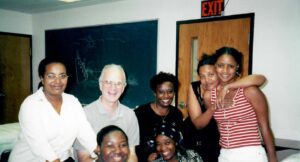
“That was a learning experience for me, every time I would go there. You see how the rest of the world lives and it’s not always fair,” Michael said, reflecting on the experiences that influenced his later work with immigrants.
Though Michael loved his 28 years living in community as a member of the Society of Jesus, working as a high school and middle school teacher and as a parish priest, his personal and professional focus began to shift and he made the difficult choice to take a leave of absence in 1997. “I will be forever grateful for the time that I was a Jesuit. It helped make me the person I am today,” Michael said.
While on leave, he worked in an immigration services office and as a Spanish interpreter for Central American asylum applicants in Brooklyn, New York. “That opened my eyes even further to the evil in the world,” Michael said. “I’d think: how can this persecution be happening in the world? How can someone who tortures another human being sleep at night?”
These experiences profoundly shaped his understanding of human suffering and resilience.
Two years later, Michael made the choice to leave the Society of Jesus, and moved to the Twin Cities, creating space to discover a new phase of his life and to pursue a relationship with Bonnie Wek, whom he had met during a sabbatical program in 1995 in Berkeley, California. They were married in 2005.
His collective experiences pushed him forward with the knowledge that no matter what his work looked like in the future, it would always be in service of others.
Finding his professional home
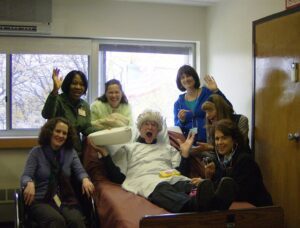
As Michael grew into his job at the Institute, he stayed focused on the core mission of helping New Americans so they could become self-sufficient. By listening to client stories, he and others at the Institute learned where the gaps in support and understanding were and addressed issues such as mental health, racism, college preparation and American workplace culture.
“It was quite an exciting time,” Michael said. “It was really an opportunity to identify the particular needs of individuals. So that’s what we did, and it’s what we still do.”
His ability to empathize and imagine himself in the lives of the New Americans helped him lead with an open heart and mind.
Michael recalled times when he would notice newly arrived refugees waiting in the lobby for their case manager and think, “They were living in a refugee camp just two weeks ago. And now look where they are. What must this be like for them?”
Those early years of his Institute career also forged the strong partnership between himself and executive director Jane Graupman, who was then the director of education. Michael described the inspiration of Jane’s energy and non-stop ideas as they, along with current director of immigration, Corleen Smith, pursued funding opportunities and ways to advance the Institute’s offerings.
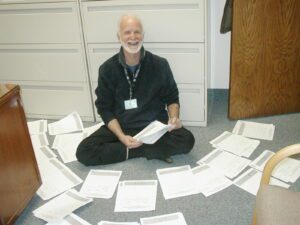
“We’d stay up late at night. We’d stay here late in the afternoon and evening. We’d work on the weekends,” Michael remembered, explaining that there was no development team at the time. “I knew this was where I needed to be.”
More than just a job
As the years progressed, Michael kept working with nursing assistant students, but when Jane became executive director of the Institute in 2010, he agreed to accept Jane’s invitation to become associate director and take on more of an administrative role, working with Jane on the budget, bringing the Institute into stronger financial standing, forging partnerships with community organizations, and continuing to lead both the Institute’s Medical Careers Pathway, and later the Hospitality Careers Pathway.
“I’m proud of what our team was able to do to increase funding opportunities and help the Institute expand its services.” Michael said. “And I’m really proud of all the people I’ve worked with in other agencies,” such as Greater Twin Cities United Way, the Phillips Family Foundation, the Local Initiatives Support Corporation and the Department of Employment and Economic Development, among others.
Despite the administrative shift, he never lost his gift for personal connection.
“I have always felt that one of my responsibilities that was never written in a job description is to welcome people,” he said. “That, to me, should be an integral part of every workplace, and I feel that’s one of the gifts that I brought here.”
Another way he welcomed community members was through 20 years of Festival of Nations participation. Whether prepping for the Festival by hanging signs or interacting with visiting school children, Michael relished the opportunity to engage with cultural groups from around the world.
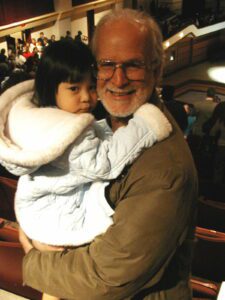
At the Institute, Michael is also the person who acknowledges every staff birthday and who is often seen helping a client by holding and comforting their child. He sees the humanity in each person he meets and works with. Though Michael is no longer a Jesuit priest and the Institute is a non-religious organization, he attributes his faith as inspiration for how he interacts with others.
Working at the Institute was “the first experience of my working career in which I wasn’t in a predominantly Catholic Christian environment,” Michael said, explaining that he has loved and been blessed working with colleagues of all backgrounds, from Muslim to Buddhist to Jewish to Christian to no particular religious affiliation at all.
Michael said, “You can feel that we all share a common mission, one that simply asks us to have a passion for justice, to have generous and compassionate hearts, and to have a good sense of humor. I have learned that this is one of the gifts of the Institute. It makes me cry with joy because that’s just the way it should be.”
